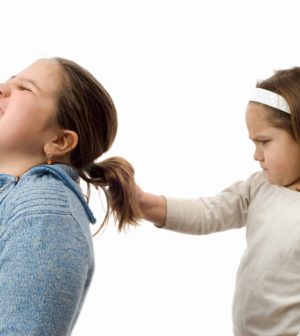- Belgium comes to Yamashita Park
- Residential Villa in Phuket Entices Remote Workers With Long-Stay Rates
- Rare pieces of French glass art at the Mirai Museum of Art
- Feast on fresh fish and seafood at the 2024 ‘Sakana’ Festival
- Would you like to ride in a Louis Vuitton gondola lift?
- Naked Snow Aquarium
- Festive lights at Yomiuriland will get you feeling the holiday vibes
Should parents be held responsible for their child’s bullying behaviour?

There are rumblings in the USA that a lawmaker in Pennsylvania is wanting to pass a bill that will hold parents responsible for their children’s bullying behaviour.
According to an article at thestar.com parents would be fined up to $750.00 if their children don’t stop their bullying behaviour.
So I thought I would address how parents may even try to stop their child from bullying and whether or not they are to blame if they continue to bully others, despite the parent’s best efforts.
Parents, I believe, are only one factor in this equation. Yes, we do model how to interact with people. If we bully our spouses or our children or our pets, then it’s more likely that our children will follow our example and do the same when with their peers, pets or even us. So, part of trying to prevent our children from bullying others is to become more aware of our own behaviour and behave in a way that is consistent with what we hope to see from them.
However, there are other factors that influence whether a child bullies others or not. They may be lacking in self confidence and feel a boost when part of a larger crowd of kids who may get their kicks out of bullying others. This boost may lead them towards wanting to do more of the same so as to feel an increased sense of power. Some children are born with a certain temperament or personality that tends towards being less compassionate or taking pleasure from seeing others squirm. Some of these children are born to very kind, caring parents who model compassion.
Depending on how heavily weighted each of these factors is, parents can potentially help their children understand the impact that their behaviour has on others, but I have my doubts as to whether parents can eliminate bullying behaviour completely, no matter how hard they try.
So what can parents do towards reducing bullying behaviour?
Most importantly, it’s best not to bully our children into not bullying. Bullying may include intimidation or threats of punishment that are unrelated to the problem behaviour. For example, threatening to take your child’s cell phone away if he continues to bully a child on the playground does not make sense (unless of course he is using his phone for cyber bullying). Spanking is a form of bullying behaviour and inflicting any form of physical harm on ones child is absolutely not a good idea.
Try to understand what’s at the root of your child’s bullying behaviour. If it’s not coming from what they see at home (and that includes how they’re treated by siblings), then what might be fueling them? If you feel that your child has the “devil” in him or has always had a “mean streak,” or if you feel that she may be lacking in esteem, then an assessment by someone who works with and understands the way that children think and behave, may be wise.
My take on this is that rather than punish parents for the way in which their children are behaving, I’d rather see parents being offered workshops to help them understand the root cause of their child’s bullying behaviour and being offered strategies for helping to resolve the issues.
For example, if a child is low in self esteem or hanging out with a group of mean kids, then parents may benefit from learning ways to boost his self worth and ideas for trying to engage him with a different group of children that will bring out the best in him.
Overall, I understand the importance of responding to bullying concerns but I worry that punishing parents is a form of bullying too, rather than addressing the issue with more compassion and working towards prevention.
I also worry that if parents are held completely liable for their child’s behaviour, then the child may not feel the need to take personal accountability for what they’ve done. In addition, parents will most likely grow increasingly angry, frustrated and resentful towards their child- which may lead to actions on their part that may hinder rather than help the situation.
A parent’s response to hearing that their child is bullying others is often dependent on the way in which they are approached. If a parent feels threatened, bullied or held entirely responsible, then he or she may be more inclined to want to defend their child. However, if a parent is approached by someone who acknowledges that the bullying child’s parent may know nothing about what is going on, or by someone who appears to want what is best for everyone, then a parent may be more inclined to collaborate and “hear” what is being shared and requested of them.














